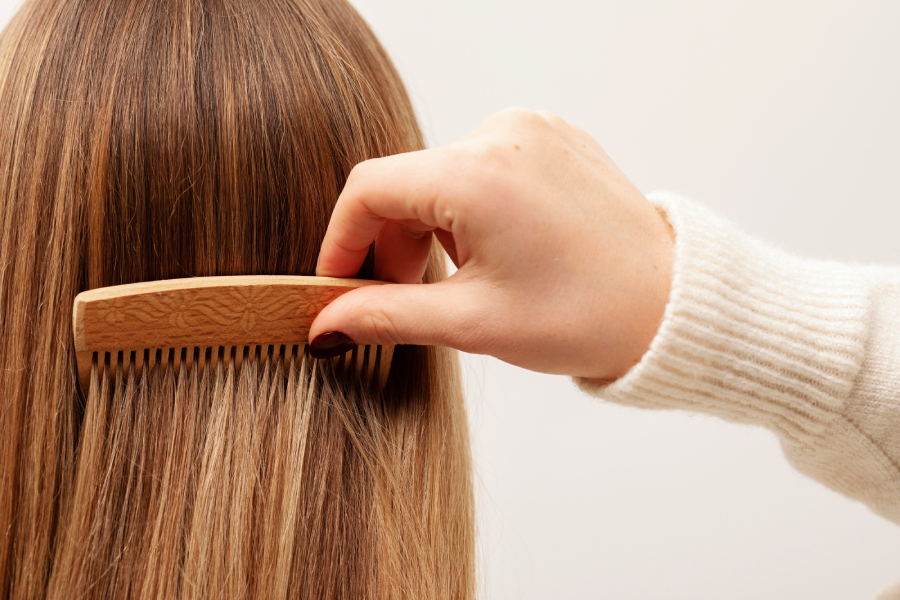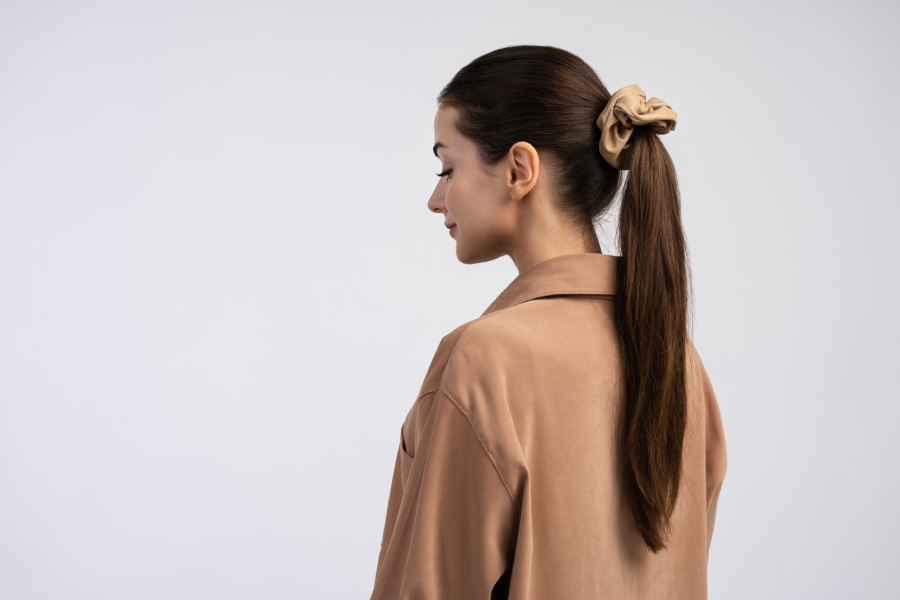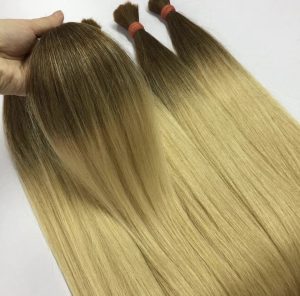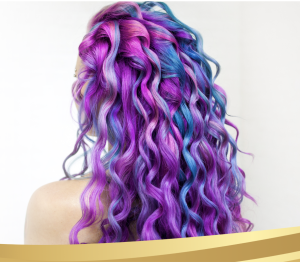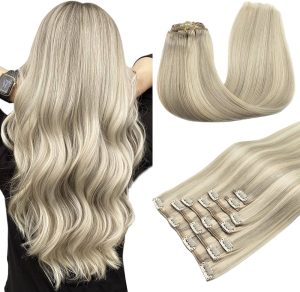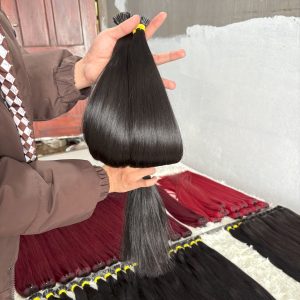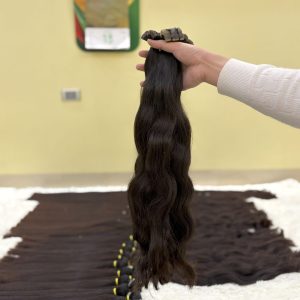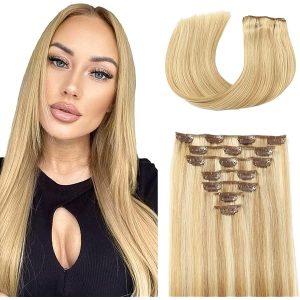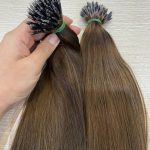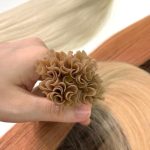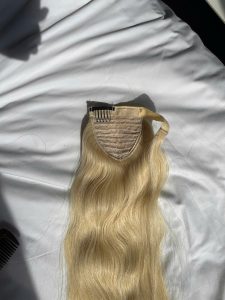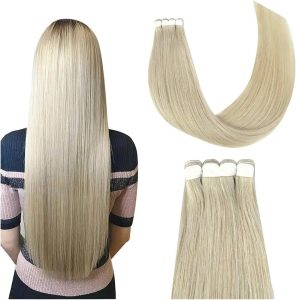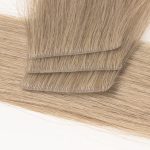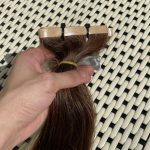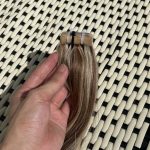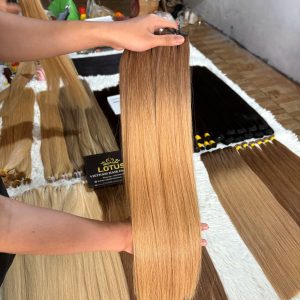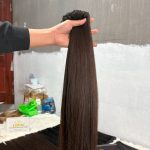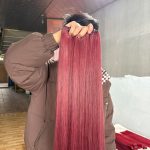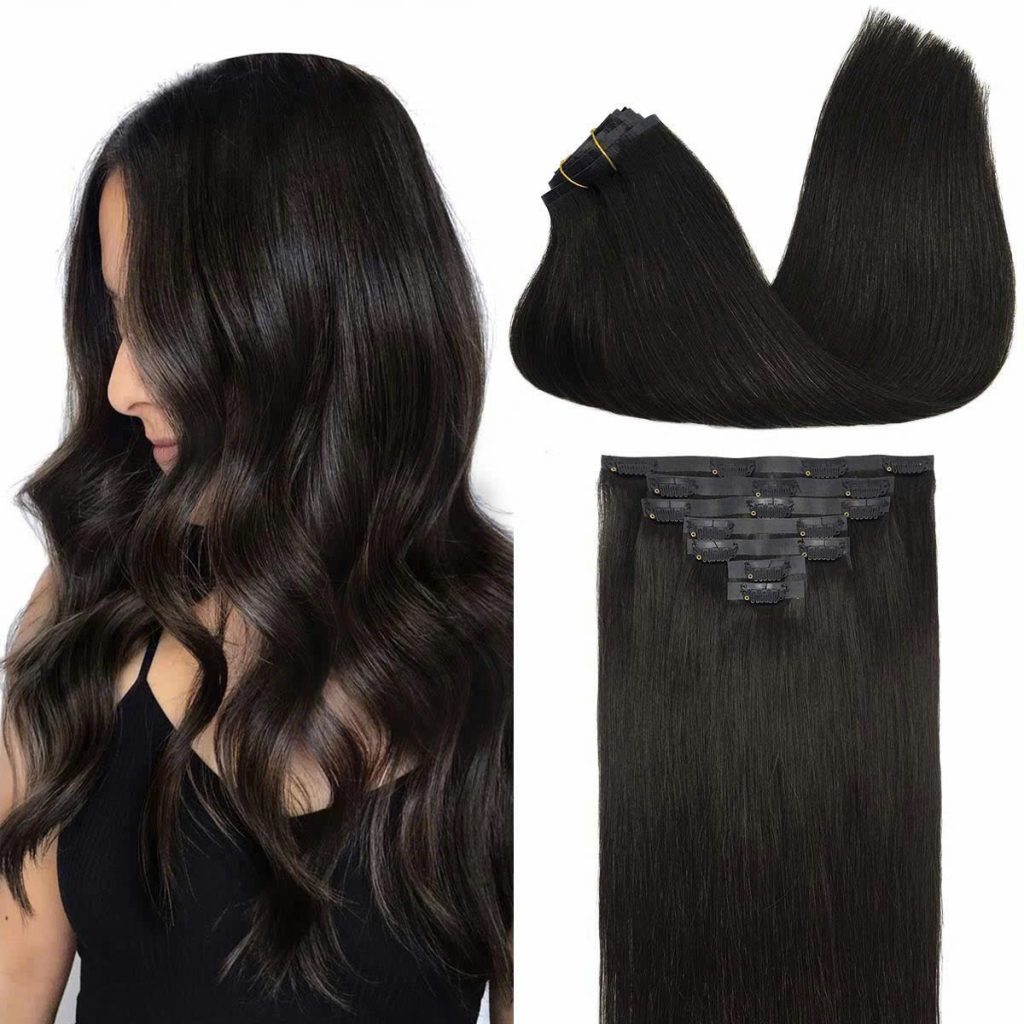Is it safe to get hair extensions during pregnancy?
One of the most common questions expectant mothers ask during pregnancy is: Is it safe to get hair extensions while pregnant?
The answer isn’t entirely straightforward, as it depends on various factors such as the current condition of your hair, as well as the materials and techniques used during the hair extension process.
In this article, we’ll share the most practical and helpful information to help you better understand whether hair extensions during pregnancy are a good idea—how to maintain a polished and attractive appearance without compromising your health or your baby’s well-being.
Should pregnant women get hair extensions?
Hair extensions have long been considered a popular and effective beauty solution, especially for women who desire long, thick, silky hair they may not naturally have. This method quickly addresses concerns like thin, sparse, or damaged hair while providing a refreshed, feminine, and attractive look.
However, when a woman enters pregnancy—a time full of emotions, changes, and sensitivity—priorities begin to shift. The health of the baby and the mother becomes the top concern. As a result, many pregnant women start to worry: Is it safe to get hair extensions during this time?
The answer is: Yes, you can get hair extensions while pregnant, and in fact, many women continue to do so during pregnancy without experiencing any serious effects. However, it’s essential to carefully assess your own health before making the decision.
What to do before getting hair extensions during pregnancy:
-
Get a general health check-up: First, consult a specialist and undergo necessary tests. It’s particularly important to check your hormone levels, as hormonal changes during pregnancy can significantly affect the health of your hair and scalp.
-
Visit a trichologist (scalp and hair specialist): This expert can accurately evaluate the current condition of your hair and scalp. If your hair is weak, prone to breakage, or your scalp is irritated, it may be advised to postpone extensions until your condition stabilizes.
-
Discuss thoroughly with your hair extension technician: If you’ve had extensions before and work with a trusted technician, they can provide practical advice. They’ll understand your hair’s structure, the quality of hair used for extensions, and the most suitable techniques—especially during a more sensitive time like pregnancy.
When should pregnant women avoid hair extensions?
Hair extensions aren’t always suitable during pregnancy, and in certain cases, experts recommend pausing or avoiding this beauty treatment to ensure both hair and overall health are not compromised. Here are some situations to consider:
-
Hormonal changes make hair weaker and more brittle: Pregnancy hormones can drastically change hair texture. Many pregnant women notice their hair becomes thinner, weaker, and more prone to breakage. In such cases, adding extensions may put unnecessary strain on already fragile strands, leading to damage, hair loss, or scalp issues.
-
Choose lightweight, high-quality extensions for fine hair: If you still wish to get extensions during pregnancy, opt for high-quality options like Slavic hair, which is soft, lightweight, unprocessed, and particularly suitable for weak hair. This choice minimizes the risk of damage during use. If you’re unfamiliar with Slavic hair, visit our blog for more details.
-
Increased scalp sensitivity: Hormonal changes not only affect your hair but also make your scalp more sensitive. If you begin to experience itchiness, irritation, rashes, or any signs of scalp discomfort, it’s best to delay extensions until your body returns to a more balanced state.
-
Noticeable hair loss: Some women experience increased hair shedding during pregnancy—a completely normal physiological response but a clear sign to avoid extensions at that time. Adding stress to already weakened hair could worsen the situation. Wait until your hair becomes healthier before proceeding.
-
Hair extensions require long hours and may cause fatigue: The extension process typically lasts from 2 to 4 hours, depending on the method and desired volume. For pregnant women—especially in the second or third trimester—sitting in one position for an extended period can be uncomfortable, leading to backaches, numb legs, or overall fatigue. So it’s crucial to consider your comfort level before deciding.
-
The smell of keratin glue might be unpleasant: Some extension techniques use keratin-based adhesives, which may emit a mild odor during the heating process. During pregnancy, your sense of smell becomes more sensitive, and this odor could cause nausea or headaches. Of course, sensitivity to smells varies—some may hardly notice it, while others may be more affected.
-
Consider removing extensions two months before your due date: This is when your body needs maximum relaxation in preparation for childbirth. Removing extensions before labor gives your scalp and hair time to rest, offers a lighter, more comfortable feeling, and makes postpartum hair care easier.
After reading all this, you might feel a bit worried and think hair extensions should be completely avoided during pregnancy. But that’s not necessarily the case. We’re not here to fully endorse or reject the idea—we simply want you to stay in tune with your body and pay attention to even the smallest changes.
If your health permits, you can absolutely continue enjoying hair extensions and the beauty of long, glossy hair all the way into the final months of pregnancy. Looking good helps you feel confident and uplifted during this sacred journey into motherhood.


